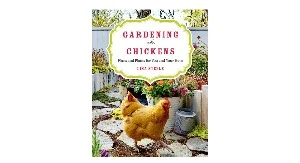Plant a Nesting Box Herb Garden for your Chickens
Birds have been observed in the wild lining their nests with all kinds of weeds, flowers, grasses, and herbs. Clearly they innately know something about the benefits of the plants to their newly hatched babies.
Often we can enhance our chicken keeping as well as our own lives by mimicking what animals do in the wild. That’s one reason why I love using plants like the ones in this garden in my chickens’ nesting boxes.
I’ve found that flowers not only look pretty, but also that some, like marigolds, can help repel insects that might otherwise take up residence in your coop. Herbs, such as lavender, can help calm and relax your hens.
Plant a Nesting Box Herb Garden for your Chickens
The more comfortable and secure a chicken feels in the nesting environment, the more likely she will be to feel it’s a safe place to lay her eggs after all.
Furthermore, if you want encourage one of your chickens to sit on eggs to hatch them, creating a relaxing and stress-free environment might make her more likely to settle in and sit for the entire 3-week period necessary to hatch the eggs.
Scattering flowers and herbs in your nesting boxes also provides your sitting hen with something nutritious to munch on while she’s sitting.
Broodies don’t get up and get as much exercise or feed as normal, so providing them a tasty treat is beneficial.
I love to use fresh herbs in the boxes when they’re in season. That’s more akin to what wild birds would be using in their nests, and the moisture content in the herbs also provides your hen with some hydration while she sits.
In the off-season, dried herbs are certainly the next best thing.
Adding herbs to your nesting boxes can also help keep your nesting boxes bug free. When a hen is sitting on eggs, the dark, humid area under her makes a perfect spot for parasites, such as mites or lice, to move in.
These bloodsucking parasites are terribly harmful, especially to young chicks. They can cause anemia and even death.
To complicate matters, you don’t want to have to use a chemical mite powder in your coop anytime, but especially not when you have baby chicks hatching.
Anything you can do to make that nest less hospitable to insects is very important. The more aromatic herbs, such as mint, lemon balm, basil, and rosemary, are all wonderful at repelling bugs./p>
Resembling lavender,with small, raggedy, light green leaves and light pink or purple flowers at the end of long stalks, it might look dainty, but it’s a remarkably hardy plant.
And yes, like catnip, your cat might be tempted to roll in it, so be sure to cage small plants to prevent that, if necessary, as well as to keep it safe from your chickens.
PLANTING TIPS: Plant small plants in full sun in well-drained soil. In the warmer climates, partial shade works as well. Catmint can grow to be a fairly sprawling plant, so be sure to leave plenty of room for it to stretch out. Like mint, it is often best contained in a planter or other confined space, like a window box.
HARDINESS: Catmint is a drought-tolerant perennial. It grows best in Zones 3 through 10.
HARVESTING TIPS: Trim blooms and stems as desired. Cut plants back by one-third in early summer after the first set of blooms have faded. A second cutting can be done in late summer or early fall. Hang the stems upside down to dry.































